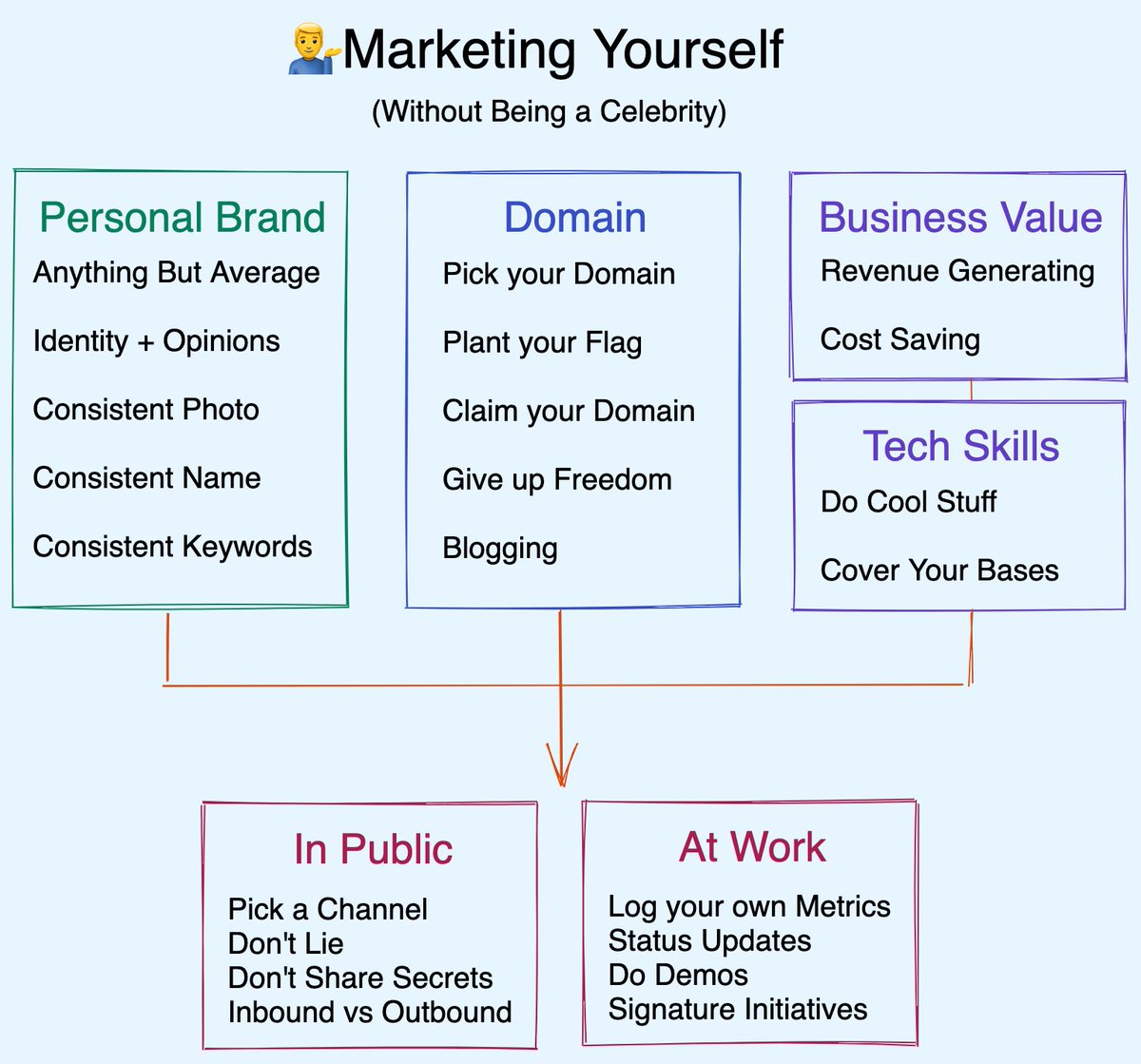
A reader asked about mental models that I learned from my finance days, that are still relevant for developers.
Here's a quick thread in no particular order, let me know what resonates or mystifies:
Here's a quick thread in no particular order, let me know what resonates or mystifies:
1. The Role of Confidence (Being a Con Man)
- People are attracted to confidence for interviews and promotions
- We aren't as objective as we think
- Jobs which traffic in confidence are prone to bullshit
I've actually written about this one already:
- People are attracted to confidence for interviews and promotions
- We aren't as objective as we think
- Jobs which traffic in confidence are prone to bullshit
I've actually written about this one already:
https://twitter.com/swyx/status/1272260086509887488?s=20
2. Opportunity Cost vs Sunk Cost
- Assess each choice relative to your other options.
- For employers: be great at finding and evaluating options in ways they care about
- For your self: Accumulating options = Building wealth
- "Making past mistakes look good" is not an option
- Assess each choice relative to your other options.
- For employers: be great at finding and evaluating options in ways they care about
- For your self: Accumulating options = Building wealth
- "Making past mistakes look good" is not an option
3. Leverage
- Decouple your input from your income
- This can mean: automation, scalable code, transforming high fixed capex to variable opex (see #4)
- Do something once, benefit infinitely
The better you can do this, the more you should own equity rather than take salary.
- Decouple your input from your income
- This can mean: automation, scalable code, transforming high fixed capex to variable opex (see #4)
- Do something once, benefit infinitely
The better you can do this, the more you should own equity rather than take salary.
4. Fixed vs Variable Cost
- Fixed costs are usually high upfront, but constant. Great for large scale.
- Variable costs are 0 upfront, linearly increasing w usage
- Open source is a way to socialize fixed cost
- Developers can transform Fixed to Variable
- Fixed costs are usually high upfront, but constant. Great for large scale.
- Variable costs are 0 upfront, linearly increasing w usage
- Open source is a way to socialize fixed cost
- Developers can transform Fixed to Variable
https://twitter.com/swyx/status/1326558340541939712
5. Compounding
- The best careers exhibit geometric rather than arithmetic growth
- Do this by accumulating Career Capital that gives Leverage
- Turn your Variable effort to Fixed Assets
- Make choices that compound when you Bet on Tech & Consume Content
- The best careers exhibit geometric rather than arithmetic growth
- Do this by accumulating Career Capital that gives Leverage
- Turn your Variable effort to Fixed Assets
- Make choices that compound when you Bet on Tech & Consume Content
https://twitter.com/swyx/status/1323029398518263811
6. Megatrends
- Fads come and go, and you are right to bet against them.
- But some revolutions capture the entire industry and make fortunes and reputations for people who bet early. Do NOT bet against megatrends.
- Learn to tell the difference.
learninpublic.org/v1-strategy-in…
- Fads come and go, and you are right to bet against them.
- But some revolutions capture the entire industry and make fortunes and reputations for people who bet early. Do NOT bet against megatrends.
- Learn to tell the difference.
learninpublic.org/v1-strategy-in…
• • •
Missing some Tweet in this thread? You can try to
force a refresh





